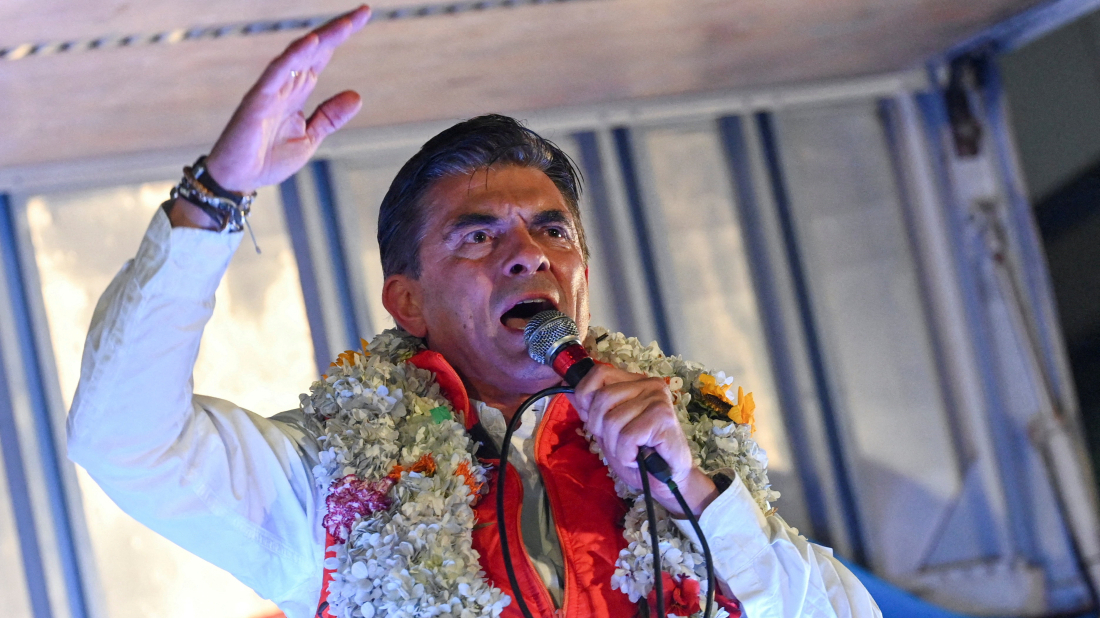Australia and Canada sign new critical minerals deals
Australia and Canada said on Thursday they had signed new agreements on critical minerals as Canadian Prim...

Investors reacted positively to the victory of centrist candidate Rodrigo Paz in Bolivia’s presidential election as markets reopened on Monday, though many warned he faces a daunting task in repairing the country’s battered economy and may ultimately have to soften his opposition to IMF assistance.
Paz, a senator from the Christian Democratic Party, won Sunday’s run-off vote, marking a major political shift in a nation largely governed since 2006 by the left-wing Movement to Socialism (MAS).
His moderate manifesto — promising to preserve social programmes while promoting private sector-led growth — appealed to some traditionally MAS-leaning voters. Yet economists fear his approach may prove too cautious to address Bolivia’s deepening economic crisis.
Inflation has surged to levels not seen since the 1980s, the fiscal deficit has climbed to around 10% of GDP, and dwindling foreign reserves, coupled with falling gas exports, have driven the local currency far below the official rate on the parallel market.
“I don’t see much alternative to an IMF programme, but how that comes together is the key question for the market,” said Graham Stock of RBC BlueBay, noting that Paz, 58, had expressed reluctance during his campaign to strengthen ties with the Fund.
Trading in Bolivia’s dollar-denominated international bonds reflected cautious optimism, with the 2028 and 2030 maturities quoted around 82.5–84.5 and 83.0–85.0 cents on the dollar, close to last week’s pre-election highs — a sharp recovery from roughly 60 cents a year earlier.
Paz will be sworn in on 8 November. Without a legislative majority, he will need to build coalitions to govern effectively, although the new Congress is expected to tilt towards pro-business centrist and right-wing parties.
Jefferies Managing Director Javier Kulesz said the more ideologically aligned parliament was “a big plus” for Paz, even if it remains fragmented.
The real test, he added, will be whether the public supports the tough economic measures ahead. “He’ll likely enjoy the traditional 100-day honeymoon to push through his agenda, but beyond that, things could get very difficult.”
Kulesz also warned that former socialist president Evo Morales still commands significant grassroots support, potentially fuelling political unrest once austerity measures begin to take effect.
Restructuring on the horizon
Analysts at U.S. investment bank Citi said the question was not if Paz would seek IMF help, but how soon, stressing that some form of restructuring was now unavoidable.
Although Paz has publicly dismissed the idea of an IMF programme, an IMF official confirmed on Friday that the Fund had held discussions with both Paz and his rival, former president Jorge “Tuto” Quiroga, before the election.
With reserves covering barely two months of imports and debt payments of around $380 million due in March, economists warn that the crisis could reach a critical point early next year.
JPMorgan analysts said markets would welcome “a front-loaded fiscal consolidation alongside a front-loaded exchange rate realignment,” both seen as crucial steps to stabilise Bolivia’s economy.
“The main challenges to any adjustment programme stem from Bolivia’s weak starting position and the uncertain degree of public backing for austerity measures,” they added.
U.S. President Donald Trump said the U.S. military has enough stockpiled weapons to fight wars "forever"; in a social media post late on Monday. The remarks came hours before conflict in Iran and the Middle East entered its fourth day.
U.S. first lady, Melania Trump chaired a UN Security Council meeting on children and education in conflict on Monday (2 March), a move criticised by Iran as hypocritical following U.S. and Israeli strikes that triggered a UN warning about risks to children.
A torpedo from a U.S. submarine sunk an Iranian warship off the coast of Sri Lanka, U.S. Secretary of Defense, Pete Hegseth told reporters as the Iranian conflcit entered its fifth day on Wednesday.
Shahid Motahari Sub-Speciality Hospital in northern Tehran and parts of the Golestan Palace were bombed on day two of the U.S.‑Israel strikes. AnewZ Touraj Shiralilou is in Iran's capital city and said that the facility was flattened in an airstrike.
At least 42 people have been killed and 104 wounded in fighting between Afghanistan and Pakistan, the United Nations Assistance Mission in Afghanistan (UNAMA) said on Tuesday. The latest death toll figures come as fighting between the two neighbours enters its sixth day.
Australia and Canada said on Thursday they had signed new agreements on critical minerals as Canadian Prime Minister Mark Carney made a landmark address to the Australian parliament, a sign of the developing bond between the "middle powers".
More than 200 people died on Tuesday in a landslide triggered by heavy rains at the Rubaya coltan mine in eastern Democratic Republic of Congo, the country's mines ministry said on Wednesday.
A power outage struck most of Cuba, including Havana, the state electric utility said on Wednesday (5 March), as the Communist-run government grapples with increased pressure from the Trump administration that has curtailed oil shipments.
Start your day informed with AnewZ Morning Brief. Here are the top news stories for the 4th of February, covering the latest developments you need to know.
Strikes across the Middle East are intensifying, fuelling travel disruption, driving up global energy prices and forcing diplomatic missions to shut their doors.
You can download the AnewZ application from Play Store and the App Store.

What is your opinion on this topic?
Leave the first comment